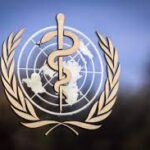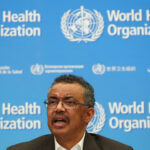
The World Health Organisation (WHO), has reported that US$26 million is what the organization and its partners need for the Ebola Response in the Democratic Republic of the Congo (DRC), over the next three months.
The WHO has so far released US$2 million from its Contingency Fund for Emergencies, Gavi – the Vaccine Alliance is contributing US$1 million dollars for operational cost, as Italy, UN CERF, USAID, the Wellcome Trust and UK DFID have also released funds to aid the course.
The WHO and its partners, are supporting the DRC with vaccines for high risk populations in the country, against the Ebola virus disease.
Vaccinations started with health workers in affected zones on Monday as well as community outreach in preparation for the ring vaccination.
According to the WHO report, over 7,500 doses of the rVSV-ZEBOV Ebola vaccine, donated by Merck, have been deployed to the DRC for use in the northwestern Equator Province where 46 suspected, probable and confirmed Ebola cases and 26 deaths have been reported, as of May 18.
The bulk of the cases were reported in the remote rural town of Bikoro, while four cases have been confirmed in Mbandaka, the provincial capital with a population of over one million people.
Speaking on how much difference the vaccine will make towards improving the situation, the WHO Director-General, Dr Tedros Adhanom Ghebreyesus, said, "Vaccination will be key to controlling this outbreak. We are grateful for the support of our partners in making this possible."
The international humanitarian medical non-governmental organization, Medecins Sans Frontieres (MSF), UNICEF and other key partners are implementing a ring vaccination with the yet to be licensed vaccine, whereby the contacts of confirmed cases and the contacts of contacts are offered vaccination.
WHO Regional Director for Africa, Dr Matshidiso Moeti, described implementing the Ebola ring vaccination as a complex procedure.
Moeti, said, "The vaccines need to be stored at a temperature of minus 60 to minus 80 degrees centigrade and so transporting them to and storing them in affected areas is a major challenge."
According to the organisation, a ring vaccination strategy relies on tracing all the contacts and contacts of contacts of a recently confirmed case as soon as possible. Teams on the ground have stepped up the active search and follow up of all contacts with over 600 identified so far.
“Frontline healthcare workers and other persons with potential exposure to EVD – including but not limited to laboratory workers, surveillance teams and people responsible for safe and dignified burials – will also receive the vaccine,” the WHO said.
The organisation’s Deputy Director-General for Emergency Preparedness and Response, Dr Peter Salama, said, "We need to act fast to stop the spread of Ebola by protecting people at risk of being infected with the Ebola virus, identifying and ending all transmission chains and ensuring that all patients have rapid access to safe, high-quality care."
In Mbandaka and Bikoro, the WHO has provided vaccine carriers which can keep their contents in sub-zero temperatures for up to a week and has set up freezers to store the vaccines. It is along with the DRC’s Ministry of Health, UNICEF and other partners deploying both Congolese and Guinean experts to build the capacities of local health workers, whilst engaging communities to inform people about Ebola and the vaccine.



